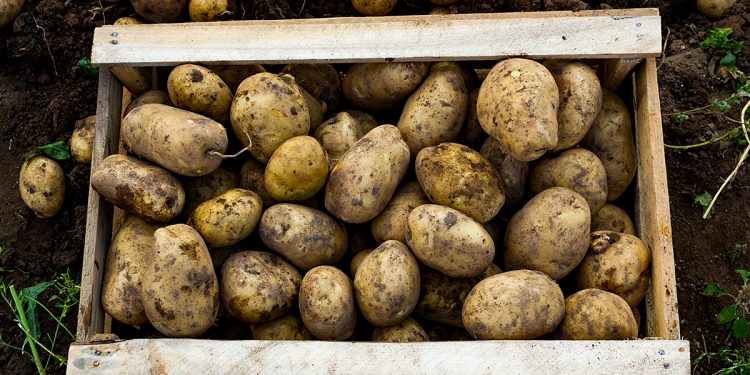A Promising Opportunity for Potato Cultivators and Entrepreneurs.
The Ministry of Agriculture of Kyrgyzstan is making significant strides in the agricultural export sector as it approaches the final stages of negotiations with the administrations of approximately ten major retail outlets in Uzbekistan. This initiative aims to establish robust export pathways for Kyrgyz potatoes, marking a potential boon for farmers and agronomists within the region.
The ministry’s press service has confirmed that Kyrgyz potatoes are set to be featured in Uzbekistan’s largest retail chain, “Korzinka.” This development not only reflects the increasing demand for high-quality potatoes in Uzbekistan but also presents a lucrative opportunity for Kyrgyz farmers and potato entrepreneurs to expand their market reach.
Located in Tashkent, the capital of Uzbekistan, are 12 major retail and wholesale trade centers that currently exhibit a heightened demand for potatoes. This demand signals a favorable market environment for Kyrgyzstan’s agricultural exports, particularly for producers who specialize in potato cultivation. As the ministry assesses this demand, it becomes clear that Kyrgyz potatoes possess the potential to fulfill a significant portion of the market’s requirements.
The Kyrgyz Ministry of Agriculture is actively inviting interested parties, including plant protection product managers, fertilizer and plant protection product manufacturers, scientists, researchers, and food industry specialists, to collaborate in this exciting venture. The aim is to facilitate the smooth export of domestically produced potatoes to Uzbekistan, ensuring that the quality and standards meet the expectations of both retailers and consumers.
For potato cultivators in Kyrgyzstan, this initiative presents an opportunity not only to increase their production but also to enhance their understanding of international market dynamics. Engaging with Uzbek retail chains could lead to the adoption of best practices in potato cultivation, storage, and transportation, thereby improving the overall quality of the potatoes.
Furthermore, this export initiative is likely to encourage investments in agricultural technology and infrastructure, which could benefit the entire supply chain—from production to retail. By fostering a collaborative environment among various stakeholders, Kyrgyzstan can strengthen its position in the regional potato market and ensure sustainable growth for its agricultural sector.
As the negotiations progress, stakeholders are urged to stay informed about the developments and consider the potential benefits of engaging in this cross-border trade. The opportunity to export Kyrgyz potatoes to Uzbekistan’s major retail chains could serve as a catalyst for growth, innovation, and collaboration within the potato industry.
In conclusion, the Kyrgyz Ministry of Agriculture’s efforts to export potatoes to Uzbekistan represent a significant milestone for the agricultural community. With a high demand for potatoes in Uzbekistan and the commitment to meet this need, the future appears promising for Kyrgyz potato cultivators and entrepreneurs alike.







